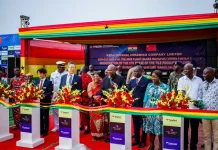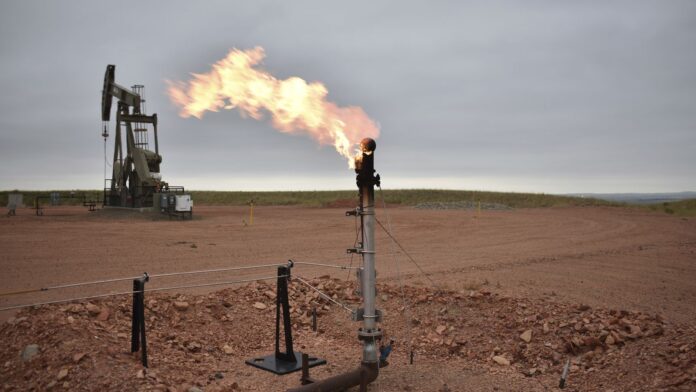JOHANNESBURG, South Africa, February 23, 2022/ — The International Energy Agency (IEA) predicts the global demand for oil and gas to increase and oil demand alone to expand by 3.3 million barrels (mb/d) per day in 2022 and return to pre-COVID levels of 99.7 mb/d, a development that will provide an opportunity for African producers such as Niger to expand its oil and gas industry and help meet demand.
In a bid to ramp-up exploration and production to achieve this objective, Niger is making its regulatory and fiscal environment conducive for oil and gas energy market players.
The recent signing of the Declaration of Niamey’ between the energy ministries of the Republic of Niger, Algeria, and Nigeria during the Economic Communities of West African States (ECOWAS) Mining and Petroleum Forum (ECOMOF) in Niamey on February 16, 2022, is a game-changer that will unlock the potential of the country’s oil and gas sector in meeting global energy demand.
The agreement paves way for the development of the multi-billion, 4,128km Trans-Saharan Gas Pipeline project which will connect the three African countries with the European market to trade up to 30 billion cubic meters of natural gas per annum.
A $4.5 billion, 1,950km pipeline project is also underway in Niger and is expected to increase the country’s production capacity by five times by 2023, once the project is operational, setting up the West African state as an energy hub for meeting both regional and continental energy demand.
Additionally, the development is expected to provide significant economic growth for the west African state. The infrastructure development projects are all aimed at attracting investments that can be used to expand the country’s oil and gas industry. They also challenge the Niger government to expand its exploration activities to increase its oil and gas capacity portfolio to be able to play an increasing role in helping meet local, regional and international energy demand.
“What Niger and the oil majors have managed to achieve in such as short space of time is impressive, demonstrating how political will, a transparent and productive framework, and an enabling investment environment can drive energy sector growth,” states NJ Ayuk, Executive Chairman of the African Energy Chamber.
Despite having vast oil and gas reserves, governments in Africa are struggling to establish capital attractive regimes for infrastructure development and exploration and production activities that would help boost economies.
With the right policies and infrastructure development in place, Niger’s oil and gas sector is expected to account for approximately 24% of the country’s GDP, 45% of tax revenues, 68% of exports as well as 8% to 12% of formal employment by 2025.
Spending on exploration and production needs to be optimal for the west African state to untap its gas reserves to achieve economic prosperity and energy security. Today, Niger’s oil reserves are estimated at 3.7 billion barrels and the country produces approximately 20,000 barrels of crude oil per day which is refined to meet local demand and is exported to Nigeria, Mali and Burkina Faso.
To expand its gas and oil potential, Niger has enacted policies that encourage the participation of international market players evidenced by the government forming a joint venture for exploration and production purposes with the Chinese National Petroleum Corporation in 2003. A wide range of international companies including Tamoil, Mobil and Total are present in the country’s oil and gas market and local gas companies Nigergaz and Sonigaz continue to expand operations with specific focus on exploration and production for economic growth and energy security.
Laws such as the 2017 Petroleum Code provides companies with years of exploration and 25 years of production activities and exemption from VAT and customs duties, making Niger an attractive investment destination.
Niger’s vast oil and gas resources remain untapped and discussions to held at African Energy Week 2022 (AEW), Africa’s leading investment platform, taking place in Cape Town on 18 – 21 October, 2022 – will focus on how models implemented in leading gas and oil producers such as Nigeria, Libya and Angola can be replicated to grow Niger’s exploration and production.
The IEA states that Africa will become increasingly influential in shaping global energy trends over the next two decades and with the continent being home to five of the world’s top 30 oil producers, AEW 2022 will highlight the role regulation can play to unlock investments required to amplify oil and gas exploration and production to address energy poverty.
AEW 2022 will explore how governments and market players in Africa can attract more funding that can enable them to increase their market share on the global market.
Distributed by APO Group on behalf of African Energy Chamber.
AEW 2022 is the AEC’s annual conference, exhibition and networking event. AEW 2022 unites African energy stakeholders with investors and international partners to drive industry growth and development and promote Africa as the destination for energy investments.
For sales related inquiries please contact sales@aecweek.com
For attendance related inquiries contact registration@aecweek.com
For speaker related inquiries contact speakers@aecweek.com
For media related inquiries contact media@aecweek.com.





































